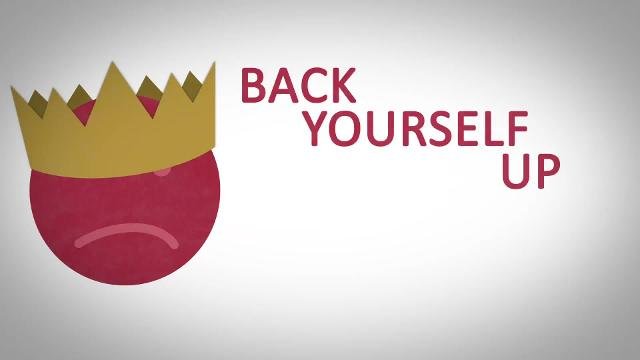First of all, you're not alone.
We spoke to admissions tutors up and down the country, and they all said the same thing: don't get stressed out trying to think of a killer opening!
Check out our advice below on beginning your personal statement the right way, including what to include, what not to do, and how to approach it (or even, put it off...).
Struggling with the conclusion to your personal statement? Read our guide on how to finish your statement the right way.
How to start your personal statement
Firstly, don't begin with the overkill opening.
One of the dangers of trying to come up with a great opening sentence is that you can end up overthinking it, and going overboard. As one admissions tutor said: 'Be succinct and draw the reader in, but not with a gimmick. This isn't the X Factor.
Admissions tutors often mention this. They emphasised the need for candidates to engage the reader with your (relevant) perceptions or ideas, not by something flashy.
Beginning your personal statement – tips from the experts
We spoke to a number of admissions tutors to get their number one tip for starting a personal statement. This is what they said:
- 'Don't waste time trying to think of a catchy opening; it's often a complete turn-off.'
- 'Your interest in the course is the biggest thing. Start with why you chose it.'
- 'The best personal statements get to the point quickly.'
- 'Start with a short sentence that captures the reason why you are interested in studying the area you are applying for and that communicates your enthusiasm for it.'
- 'Go straight in. Why are you excited about studying this course?'
- 'The opening is your chance to introduce yourself, to explain your motivation for studying the course and to demonstrate your understanding of it.'
- 'It's your enthusiasm for the course we want to know about. Start with that.'
- 'Write what comes naturally.'
- 'What you want to study and why should be in the first two sentences. What excites you about the course and why do you want to learn about it more?'
- 'Be specific from line one.'
- 'Talk about you and your enthusiasm for the subject from the very start.'
- 'In your opening paragraph you need to show that you know what you are applying for. Don't waffle or say you want to study something just because it's interesting. Explain what you find interesting about it.'
- 'It's much better to engage us with something interesting, relevant, specific and current in your opening line, not 'from a young age' or 'I have always wanted to'. Start with what's inspiring you now, not what inspired you when you were six.'
Maybe don't begin at the start?
Some tutors even suggested you shouldn't even begin at the start...
- 'I think the opening line is the hardest one to write, so I often say leave it until last and just try and get something down on paper.'
- 'Don't spend too long on the introduction. Concentrate on the main content of your statement and write the introduction last.'
- 'I often advise applicants to start with paragraph two, where you get into why you want to study the course. That's what we're really interested in.'
The best statements tend to be genuine and specific from the very start. So you'll be on the right track if you explain your enthusiasm for the subject or course, your understanding of it, and what you want to achieve from it.
Five cliche statement beginnings to avoid
However, try to avoid the most obvious opening sentences in your personal statement, so you stand out from the first line. To help, every year UCAS publishes a list of the most common opening lines in personal statements, and urges applicants to avoid using these hackneyed phrases. Previous years' top five included:
- 'From a young age…'
- 'For as long as I can remember…
- 'I am applying for this course because…'
- 'I have always been interested in…'
- 'Throughout my life I have always enjoyed…'
And at number eleven was a Nelson Mandela quote, which brings us on to our next section...
And don't rely on someone else's words – ditch the opening quotes
Quotations are top of the list of admissions tutors' pet hates. They particularly dislike it if you put a quotation in right at the start – and it's even worse if you don't actually explain why it's there.
It's your statement, after all. They don't want to know what Nelson Mandela thought – they want to know what you think!
Connect the beginning of your statement to the end
A final thought. One technique that can be effective is the 'necklace approach'. This is when you make a link between your opening sentence and closing paragraph, reinforcing and adding an extra dimension at the end to what you said at the start.
For example, if you started with an interesting line about what is currently motivating to study your chosen degree course, you could link back to it in your closing paragraph, perhaps with something about why you would love to study this further at uni.
What else are you struggling with in your personal statement?
Check out our guides to concluding your statement and talking about your hobbies the right way.
If you're in the early stages of writing your personal statement, take a look at our beginners guide that covers everything you need to know to write your personal statement, or use our personal statement tool to create an easy first draft to work from.

